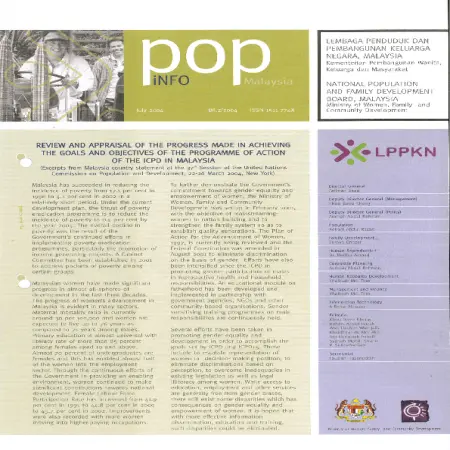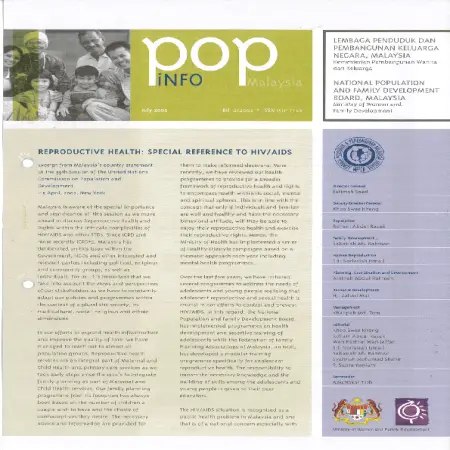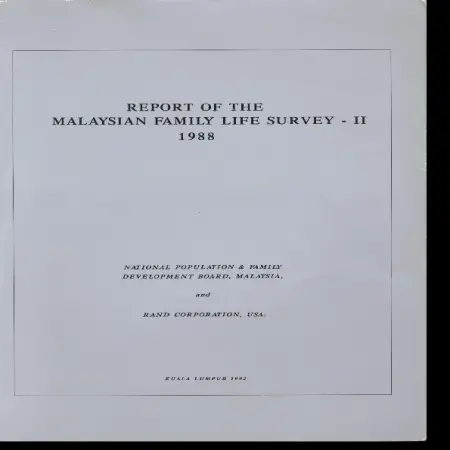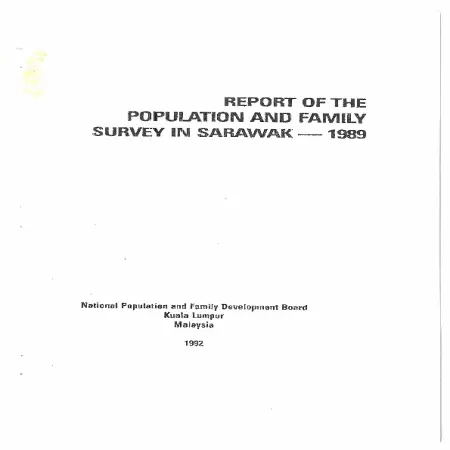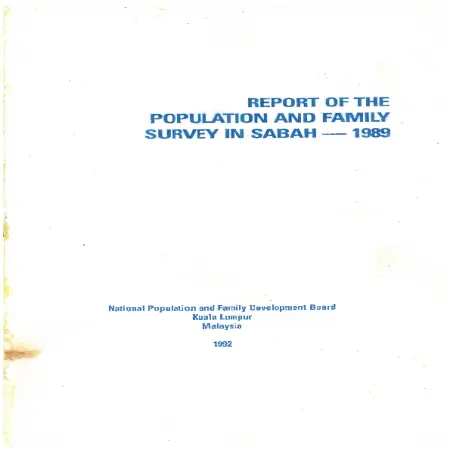PUBLICATIONS
|
|
Review and appraisal of the progress made in achieving the goals and objectives of the programme of action of the ICPD in Malaysia
Item Type: Newsletter
Editor:
Year: 00/07/2004
Abstract: The role of the civil society organisations and non-government organisations as partners in the implementation of population programmes has been recognised and supported in Malaysia. Their involvement, participation, sharing resources and consultation have been pivotal to the sucess of the population related programmes.Since ICPD, annual dialogues between Government and NGOs have been conducted to facilitate greater smart partnership. Recognizing their role, grants are made available by the Government to NGOs to enable them to play more effective role in grassroot programmes and activities.
|
|
|
|
|
|
Reproductive health: special reference to HIV/AIDS
Item Type: Newsletter
Editor:
Year: 00/07/2002
Abstract: The HIV/AIDS situation is recognised as a public health problem in Malaysia and one that is of a national concern especially with regard to the spread of HIV / AIDS among young people and to newborns through mother-to-child transmission. Since the first case of AIDS was reported in Disember 1986, there has been a geometric increase in the number of HIV infections. Over the last seven years (1995-2001), the average number of new cases reported annually was 4,716. By 2001, the cumulative number of HIV infections was 44,208 with 1,258 cases of AIDS and 934 deaths.
|
|
|
|
|
|
Report of the Malaysian Family Life Survey-II 1988
Item Type: Research Report
Editor:
Year: 00/00/1992
Abstract: MFLS-2 was, in part, a follow-up to the original Malaysian Family Life Survey, fielded in 1976-1977, reinterviewing original respondents and their adult children, plus interviewing a new group of women age 18-49 in 1988. The information that is collected are household-level retrospective and current data from women and their husbands, covering such topics as fertility, nuptiality, migration, mortality, employment, household composition, transfers, and income as well as social, economic, and community-level factors affecting family decision making. MFLS-2 added a sample of older Malaysians to support research on their living standards, health, and intergenerational transfers.
|
|
|
|
|
|
Report of the Population and Family Survey in Sarawak - 1989
Item Type: Research Report
Editor:
Year: 00/00/1992
Abstract: The main objective of the Population and Family Survey in Sarawak was to provide necessary data for the formulation, implementation and evaluation of population and family development programmes, in line with national objectives. Specifically, the survey was conducted to collect information on socio-cultural determinants of fertility and maternity patterns, fertility preferences and behaviour, female labour force participation, childcare arrangement, family life, family planning practices, socio-economic status of subgroups, as well as population profiles and migratory patterns.
|
|
|
|
|
|
Report of The Population and Family Survey in Sabah - 1989
Item Type: Research Report
Editor:
Year: 00/00/1992
Abstract: The main objective of the survey was to provide necessary data for the formulation, implementation and evaluation of population and family development programmes, in line with national objectives. Specifically, the survey was conducted to collect information on socio-cultural determinants of fertility and maternity patterns, fertility preferences and behaviour, female labour force participation, childcare arrangement, family life, family planning practices, socio-economic status of subgroups, as well as population profiles and migration patterns.
|
|
|
|





